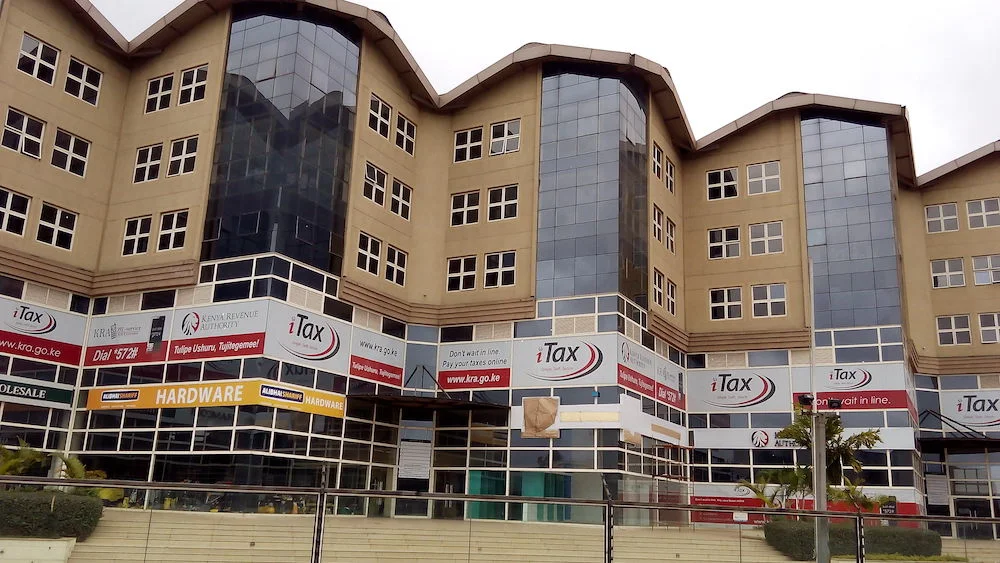The National Treasury has sparked an uproar among businesses, professional bodies, and tax practitioners after directing the Kenya Revenue Authority (KRA) to suspend implementation of critical tax offset provisions contained in the Finance Act 2025. The provisions, which had been celebrated by the private sector as a long-overdue reform, allowed taxpayers to settle their dues by applying refunds from overpaid taxes against outstanding liabilities such as Import VAT.
The new law came into effect on July 1, 2025, amending Section 47 of the Tax Procedures Act. Its aim was clear: to ease the financial burden on businesses by unlocking funds otherwise trapped in refund claims and giving taxpayers greater flexibility in meeting their obligations. For importers, manufacturers, and companies with significant withholding tax exposures, the offsets were seen as a lifeline at a time when cash flow challenges are pushing many firms to the brink.
However, the Treasury has since moved to restrict the offsets, ruling that they should only apply to taxes directly paid by the taxpayer — not to liabilities on taxes withheld and remitted on behalf of others, such as Withholding Income Tax, Withholding VAT, and Pay As You Earn (PAYE). This decision, officials argue, was necessary to align domestic laws with the East African Community Customs Management Act and to avoid creating what they describe as “legal inconsistencies.”
Yet, for many in the business community, the sudden reversal represents more than just a technical clarification; it is a devastating setback that threatens to undermine confidence in tax reform and policy predictability.
From Promise to Uncertainty
The original intent of the Finance Act 2025 was to broaden reforms first introduced in 2021, which had for the first time allowed taxpayers to use overpayments to offset some obligations. Over time, this reform was expected to reduce the backlog of tax refund claims — some of which run into billions of shillings and have remained unpaid for years — while giving businesses a much-needed liquidity cushion.
Tax consultants note that Kenya’s refund system has long been a source of friction between KRA and taxpayers. Delays in refund processing, coupled with opaque verification procedures, often lock up working capital and constrain investment. The expansion of offsets to include Import VAT and withholding taxes was therefore hailed as a practical solution.
But by halting implementation, Treasury has effectively thrown businesses back into the uncertainty of waiting for refunds that may never come, even as their tax obligations continue to accumulate.
Experts Sound Alarm
Professional bodies have reacted sharply. The Institute of Certified Public Accountants of Kenya (ICPAK) has filed a strong protest, warning that Treasury’s interpretation disregards the plain wording of the law. According to ICPAK, Section 47 of the Tax Procedures Act explicitly allows offsets against “any tax payable,” a phrase broad enough to cover both direct and third-party liabilities.
“This selective application erodes trust,” an ICPAK official said. “Taxpayers must have certainty that the law as passed by Parliament will be respected, not subject to arbitrary reinterpretation. Without that, long-term compliance suffers.”
Tax practitioners further argue that Treasury’s stance risks creating a two-tier system, where some taxpayers benefit from offsets while others remain excluded, depending on how their obligations are structured. This, they warn, distorts competition and penalizes sectors such as manufacturing and import-dependent industries, where withholding taxes and Import VAT are unavoidable.
Private Sector Feels the Pinch
For businesses, the timing could not be worse. Many firms are grappling with high inflation, a weak shilling, rising import costs, and reduced consumer demand. Cash flow has become the number one challenge for small and medium enterprises (SMEs) as well as larger corporations.
The Kenya Private Sector Alliance (KEPSA) has voiced deep frustration, with CEO Carole Kariuki noting that many businesses had incorporated the offset mechanism into their financial planning after July 1, only to be thrown into confusion by Treasury’s about-turn.
“This was meant to be a progressive reform that aligned with our economic recovery agenda,” Kariuki said. “Instead, businesses are now back to facing liquidity constraints, delays in refund processing, and unpredictable tax outcomes. We need a more flexible system that allows cross-category offsets if we are serious about supporting growth.”
Already, importers who were relying on refund offsets to manage Import VAT say they are under immense pressure. Some are now forced to borrow more from banks at high interest rates to cover tax bills while refund claims remain pending. Manufacturers warn that the increased financial strain could lead to reduced production, delayed wage payments, and even job losses.
Policy Contradictions
The controversy comes at a time when KRA is celebrating record tax collections. In July, the authority announced that it had surpassed its target, raising Ksh 2.57 trillion for the financial year. While Treasury lauded this as evidence of improved compliance and efficiency, critics point out that the refusal to honor offsets contradicts the government’s stated commitment to support businesses and stimulate economic growth.
“On the one hand, the government talks about improving the business environment,” said a Nairobi-based tax lawyer. “On the other, it pulls away mechanisms designed to ease liquidity. This contradiction sends mixed signals to investors, both local and foreign.”
Some analysts suggest that Treasury’s decision may be driven less by legal consistency and more by fiscal pressures. With government finances stretched, delaying refunds or restricting offsets effectively gives Treasury more short-term cash to work with, albeit at the expense of businesses.
Searching for a Way Forward
Amid mounting outcry, industry groups and tax professionals are pushing for urgent dialogue. Proposals include amending the law again to remove any ambiguity, developing a transparent offset framework in iTax, and introducing timelines for processing refunds. Others have suggested establishing an independent refund and offset tribunal to resolve disputes quickly and fairly.
Meanwhile, counties and regional blocs are watching closely. Some East African states have already begun experimenting with broader offset mechanisms as part of efforts to harmonize tax administration across the region. Kenya’s sudden reversal could complicate those efforts and raise questions about its commitment to regional integration.
For taxpayers, however, the immediate concern is survival. Without access to offsets, many fear they may not withstand the mounting pressures of high costs and tight credit. Some SMEs have already warned that they may shut down operations if relief is not forthcoming.
A Trust Deficit
At the heart of the issue is a trust deficit between government and taxpayers. Businesses say they need predictability and stability in tax policy to plan and invest with confidence. When reforms are rolled back without warning, it fuels perceptions of arbitrariness and erodes compliance.
As one tax expert put it: “The problem is not just about refunds or offsets. It’s about the credibility of Kenya’s tax system. If Parliament passes a law and Treasury can override it, what message does that send about the rule of law and respect for institutions?”
Unless a compromise is reached, the standoff risks not only hurting businesses but also undermining Kenya’s broader economic goals. For now, taxpayers remain caught in the middle — juggling rising obligations, delayed refunds, and a government whose policy direction appears uncertain.






